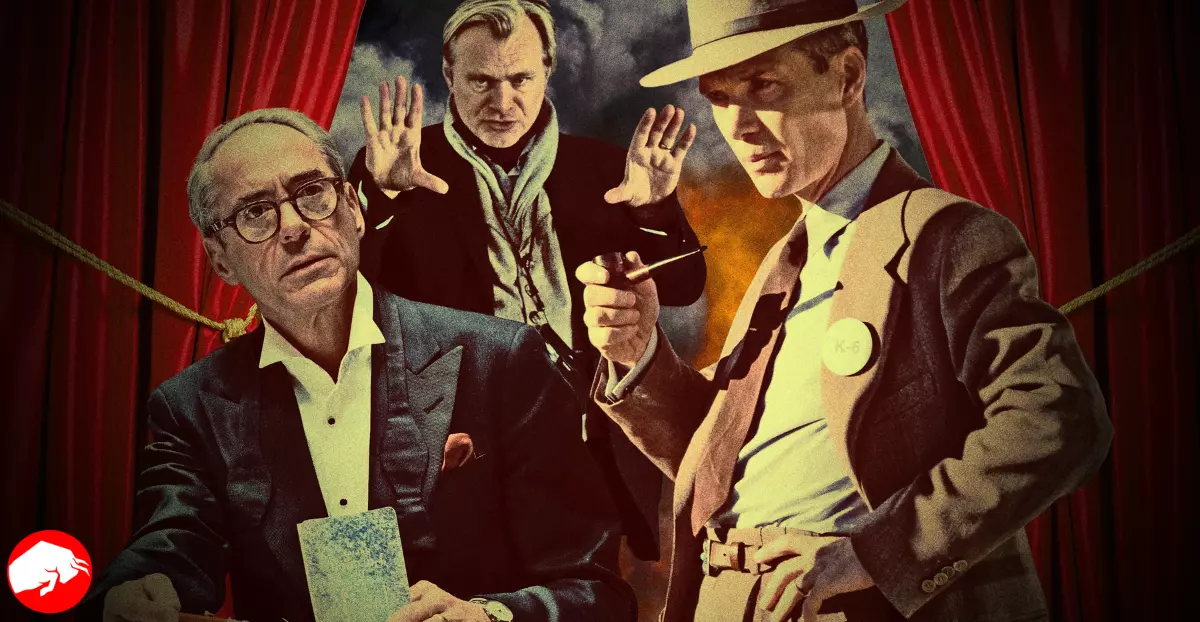Even before unveiling Oppenheimer’s much-anticipated cinematic sensation to a global audience, this mesmerizing artistry has already set the silver screen ablaze, captivating the hearts and minds of critics and movie buffs alike. This extraordinary blockbuster, molded by the virtuosic hands of the critically lauded filmmaker Christopher Nolan, has conjured waves of euphoria and anticipation in cinema.
Such is the magnetic allure of Oppenheimer that its raw power has managed to captivate not just the average movie-goer but also esteemed figures in the film industry.
In a display of high praise, the revered writer-director Paul Schrader, the visionary behind celebrated classics like Taxi Driver and Raging Bull, has lauded Oppenheimer as a film of unparalleled merit. In his view, it is a testament to the unique blend of storytelling prowess and technical finesse characteristic of Nolan’s cinematic offerings.
Furthermore, Oppenheimer had its first bout with the audience during its grand world premiere in the city of lights, Paris. The reaction it garnered was nothing short of astounding. The applause and acclamation resonated through the esteemed halls, reverberating the unanimous approval of the spellbound viewers.
Such praise, coming before the official review embargo was lifted, signifies the movie’s potential to be a masterpiece of this century.
As we traverse further into the depth of this promising cinematic spectacle, we find ourselves at the precipice of exploring ten compelling reasons why Oppenheimer is generating such an unprecedented buzz.
Why are critics and audiences lauding this film as the crowning achievement of the century? As we delve deeper, we find that each reason is a testament to the remarkable combination of passion, talent, and innovation that has gone into Oppenheimer’s making.
Let’s embark on this journey together to unearth what makes this movie a heralded treasure in cinema.
Oppenheimer: A New Beacon of Stellar Performances
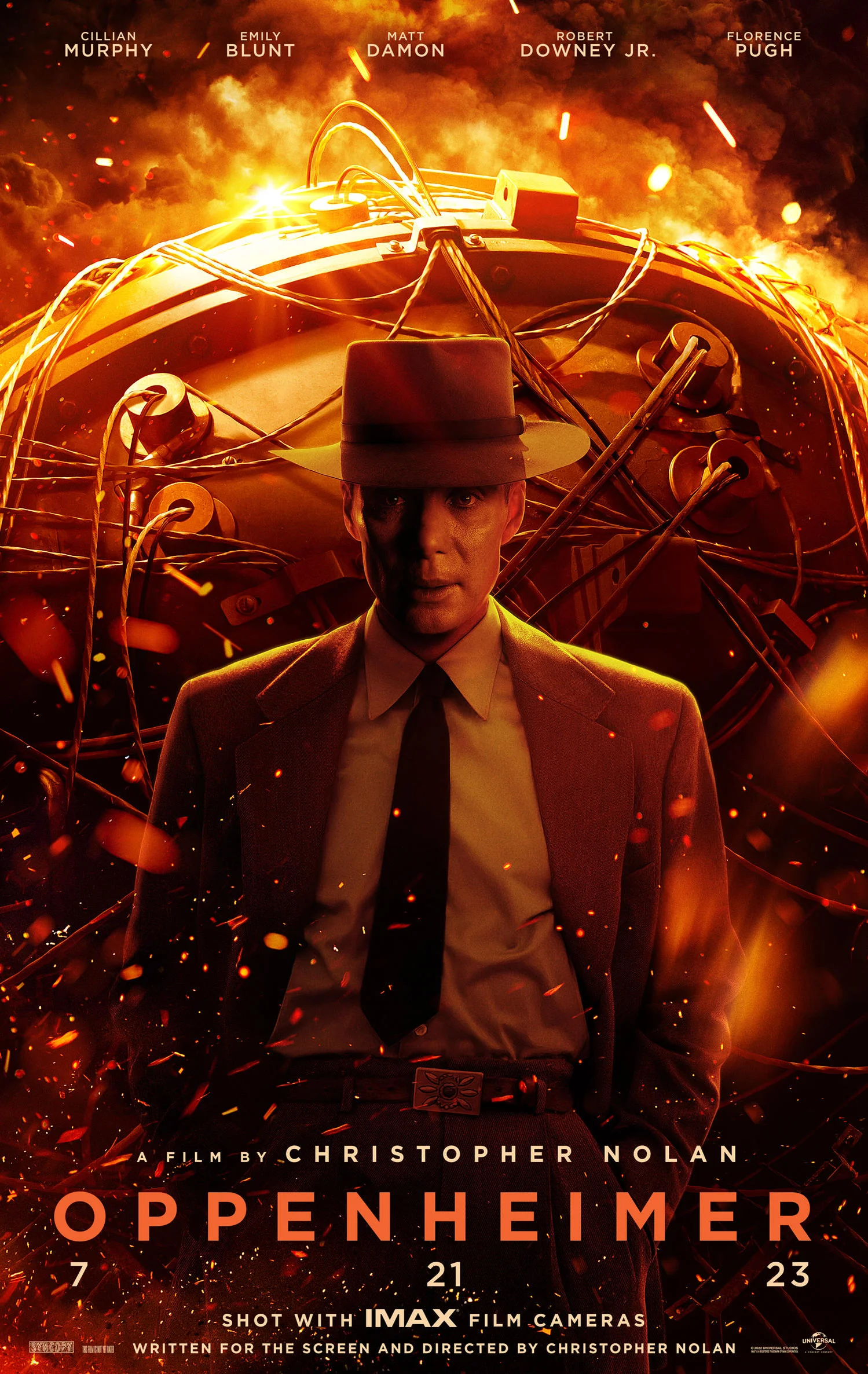
At the epicenter of Oppenheimer is the mesmerizing and multifaceted performance by the gifted Cillian Murphy. He embraces the persona of J. Robert Oppenheimer with such conviction that it transcends the boundaries of acting, enabling the audience to genuinely experience the pioneering physicist’s complex world.
Murphy’s embodiment of the character is so profound and nuanced that he doesn’t just play Oppenheimer – he becomes him.
However, Oppenheimer is not merely a one-person show. Supporting Murphy is a constellation of equally talented and accomplished actors, each adding unique flavor to the film’s narrative. Emily Blunt, known for her riveting performances, once again leaves the audience in awe with her stunning portrayal.
Robert Downey Jr., renowned for his charisma and versatility, brings a refreshing dynamism to the movie. With his masterful acting prowess, Matt Damon further enriches the narrative, enhancing the overall cinematic experience.
This collective ensemble of distinguished performers weaves together a tapestry of emotions so compelling and relatable that it leaves the audience riveted to their seats. Every line they deliver, every emotion they express, and every action they enact reverberates with emotional depth, creating an immersive viewing experience.
The audience is taken on an emotional roller coaster from the moment the opening credits roll till the final curtain drop. Each scene captivates with its intensity and authenticity, ensuring viewers remain engrossed throughout the film. The skillful performances and intricate narrative make Oppenheimer a spectacle of storytelling that engages both the heart and mind from start to finish.
Oppenheimer is not just a film—it’s an emotional journey powered by exceptional performances. This journey promises to leave viewers with a long-lasting impression and a deeper appreciation for the art of cinematic storytelling.
A Tale of Ethical Dilemmas: The Thought-Provoking Plot
An attribute that distinguishes Oppenheimer from many other films is its poignant and thought-provoking exploration of ethical dilemmas. This intriguing narrative isn’t just about weaving a captivating story but provokes the audience to ponder deep, existential questions that traverse the realm of right and wrong.
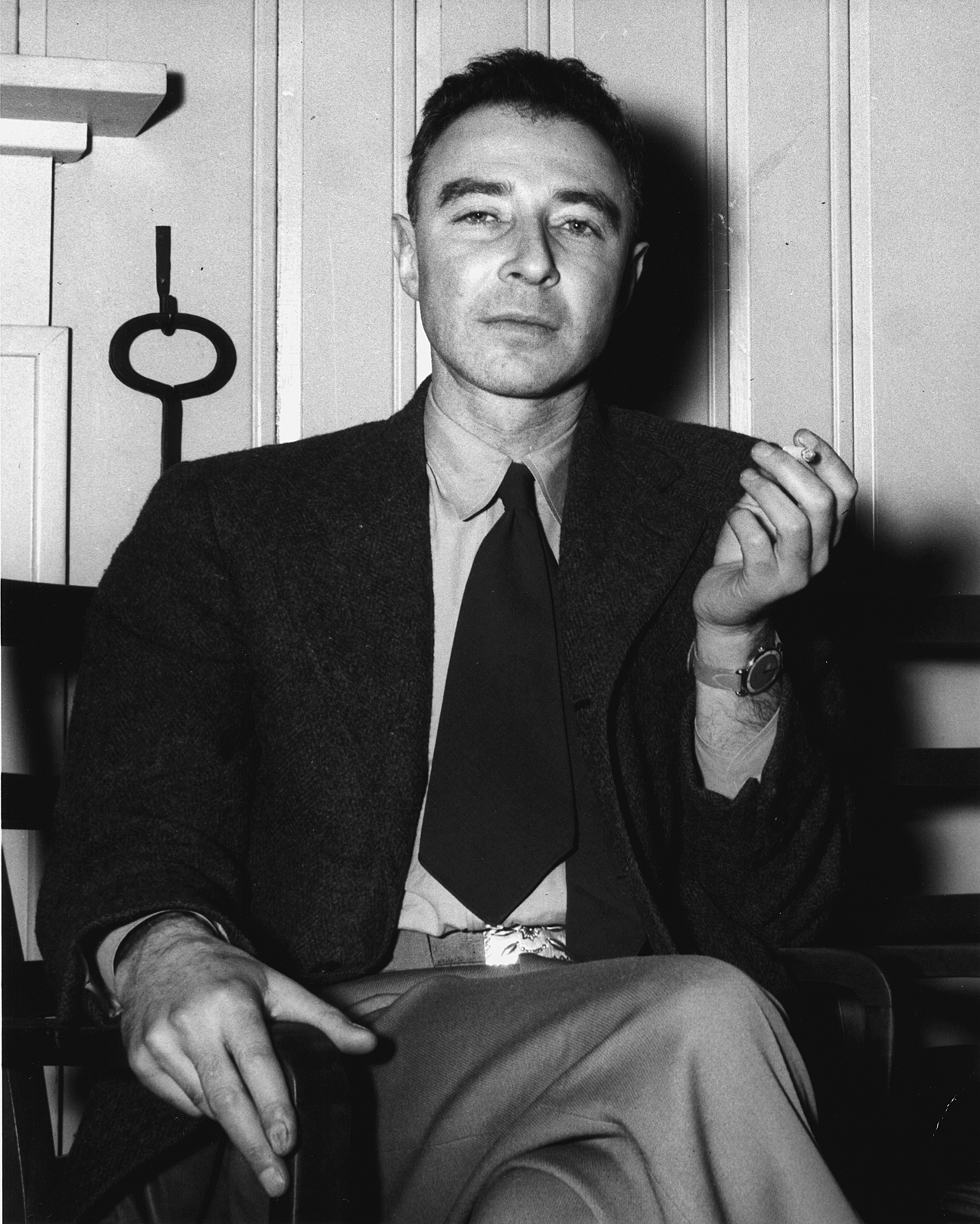
The movie sheds light on the inner turmoil experienced by J. Robert Oppenheimer and the rest of the ‘Manhattan Project team as they found themselves at the precipice of an era-defining scientific breakthrough – the creation of the atomic bomb. It meticulously unravels the complex tapestry of their thoughts, emotions, and moral qualms during these formative years that would indelibly mark the face of warfare and global politics.
Oppenheimer plunges deeper into the psychological labyrinth these characters navigate with every scene. It mirrors the human condition when faced with groundbreaking yet potentially devastating power. From the vitality of scientific achievement to the dread of its destructive potential, the audience is privy to an emotional and moral spectrum seldom explored with such depth and sensitivity.
While the plot is steeped in historical significance, the narrative takes a step further, catalyzing introspection. The audience must question their understanding of morality, the responsibility that comes with knowledge, and the often blurred lines between progress and destruction.
Oppenheimer not only caters to the senses through stunning visuals and compelling performances but also engages the mind, inciting intellectual curiosity. It challenges the viewer to contemplate scientific advancements’ implications and ethical boundaries.
The Unmistakable Nolan Factor
Oppenheimer’s magnetic draw owes much to its creator’s distinct signature – the incomparable Christopher Nolan. His visionary touch and unique storytelling techniques have repeatedly challenged traditional filmmaking paradigms, and Oppenheimer is no exception. Devotees of Nolan’s craft can rest assured that the film embodies all the quintessential attributes of his cinematic philosophy that they have grown to appreciate and anticipate.
Nolan’s mastery of creating suspense and tension is fully displayed in Oppenheimer. With his astute understanding of narrative timing and pacing, he skillfully creates a cinematic experience that keeps the audience on the edge of their seats.
Each scene contributes to a crescendo of suspense, built layer upon layer, till it culminates in a climax that leaves the viewer gasping for breath.
The structure of Oppenheimer is elaborate and meticulously crafted. Like a maestro conducts a symphony, Nolan orchestrates the film’s narrative with a keen eye for detail and an uncanny sense of coherence. He weaves together disparate threads of the plot into a grand tapestry that unveils a narrative as intricate as it is immersive.
Nolan’s films are well-known for their grand scale, and Oppenheimer continues this legacy. It’s not just a story being told; it’s an entire world being created. From the meticulous sets to the sprawling landscapes, every visual detail contributes to creating a cinematic universe that is as vast in its scope as it is profound in its implications.
An aspect of Nolan’s craft that has continually left audiences and critics awestruck is his remarkable sound design. Oppenheimer boasts a soundscape that is as engaging as the visual narrative. Each rustle, explosion, and silence is amplified, contributing significantly to the film’s immersive nature.
Finally, the visually stunning cinematography that has become a trademark of Nolan’s films further enhances Oppenheimer. Each frame is a work of art, a testament to Nolan’s eye for visual storytelling. Whether it’s a sweeping landscape or a close-up of a character’s expression, the cinematography captures it all in breathtaking detail.
A Brave Leap Beyond CGI
In an industry progressively becoming more reliant on digital technology, Christopher Nolan takes a defiant and bold stride with Oppenheimer, opting for a film devoid of Computer-Generated Imagery (CGI). This audacious choice in today’s era of cinema, where visual effects are often pivotal to storytelling, underscores Nolan’s unwavering commitment to maintaining authenticity and realism in his films. It’s an homage to traditional filmmaking techniques that feels refreshing and invigorating.
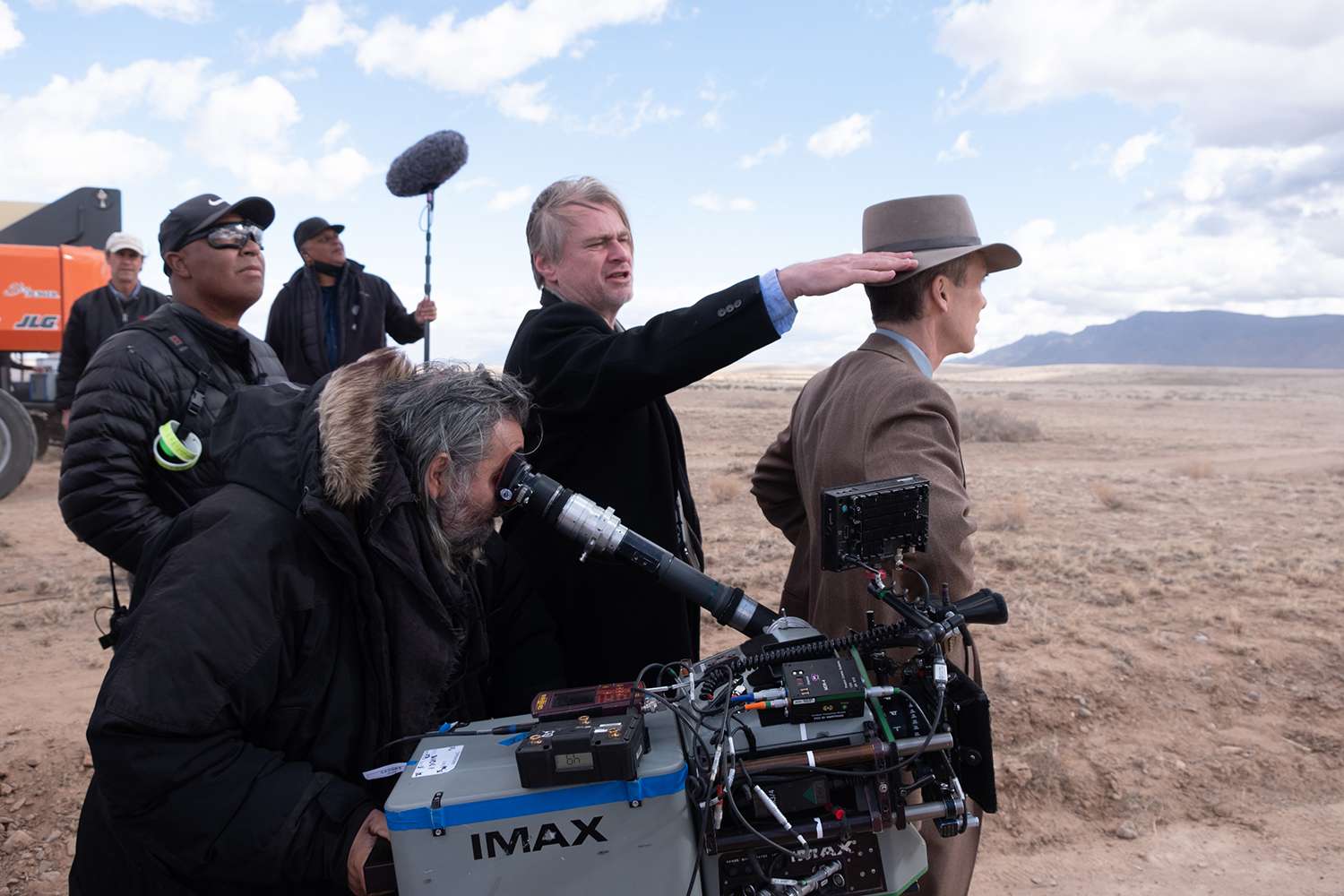
This CGI-free approach imbues Oppenheimer with a tangible, tactile quality. It’s as if the audience can feel the textures, smell the scents, and touch the surroundings of the film’s universe.
This level of realism, often lost amidst the sea of pixels and computer-generated environments in contemporary cinema, creates an immersive experience that transports viewers into the heart of the story.
Beyond the physical, Nolan’s audacity to forego CGI also lends an emotional authenticity to Oppenheimer. Without synthetic visuals, the film depends heavily on its performers’ dynamic prowess and the narrative’s compelling richness. The raw emotions and the tangible environments combined create an emotional resonance that sticks with the audience long after the end credits roll.
Nolan’s decision also signals a meaningful shift towards a more grounded style of filmmaking. It is a testament to his belief that story and performances are paramount, and while visual effects can enhance a film, they should not define it. This move might seem contrarian in a world of cinema that often leans towards larger-than-life visuals, but this audacious departure sets Oppenheimer, and Nolan himself, apart.
Emotionally Stirring: The Tear-Dropping Impact
Christopher Nolan’s latest magnum opus, Oppenheimer, is far more than a mere visual spectacle; it is an artful blend of intellectual stimulation and emotional resonance. Through an intricate narrative and exceptional performances, it engages the mind while simultaneously tugging at the heartstrings, making for a film experience that is as profoundly moving as it is thought-provoking.
Early reactions from those fortunate enough to have witnessed the film testify to its emotional gravity. Reports suggest Oppenheimer evokes deep emotional responses, striking a chord with viewers through its poignant exploration of complex characters and their moral dilemmas.
These emotional high points are not just fleeting moments of sentimentality but impactful episodes that resonate with viewers, leaving an indelible impression on their hearts and minds.
But the emotional resonance of Oppenheimer isn’t purely a consequence of its storytelling; it is also a testament to the stellar performances of its ensemble cast. Each actor delivers a nuanced performance that breathes life into their respective characters, making them feel natural, relatable, and human.
These performances, imbued with raw emotion and heartfelt sincerity, contribute significantly to the film’s moving narrative, pulling the audience deeper into the story and amplifying its emotional impact.
The Power of Positive Reviews
Oppenheimer has started making waves across the global film fraternity after its much-anticipated premiere in Paris. The initial reviews have been effusive in their praise, with critics lauding the film’s cinematic brilliance, meticulously crafted character arcs, and profound emotional resonance.
This overwhelmingly positive reception has fueled the growing buzz around the film, increasing its appeal and rousing excitement among cinephiles worldwide.
The film’s brilliance, a testament to Nolan’s visionary direction, has been a common thread across many reviews. Critics have admired Nolan’s ability to weave a complex and compelling narrative without compromising the film’s aesthetic appeal. From the captivating screenplay to the masterful direction and the visually stunning cinematography, the film has been commended for its flawless execution and cinematic brilliance.
One of the many aspects of Oppenheimer that has drawn plaudits from critics is the detailed character development. The film’s ensemble cast delivers a riveting performance, bringing to life complex, relatable, and deeply human characters. The progression of these characters throughout the narrative, marked by their emotional journeys and ethical dilemmas, has garnered praise for its depth and authenticity.
Oppenheimer: A Philosophical Enigma
Christopher Nolan’s Oppenheimer masterfully weaves an intricate tapestry of philosophical themes that underscore the film’s narrative, adding an intellectual heft that sets it apart from many of its contemporaries. By delving into the shadowy realms of technology, the brutal nature of war, and the profound responsibilities borne by scientists, the film compels viewers to grapple with challenging questions and complex ethical dilemmas.
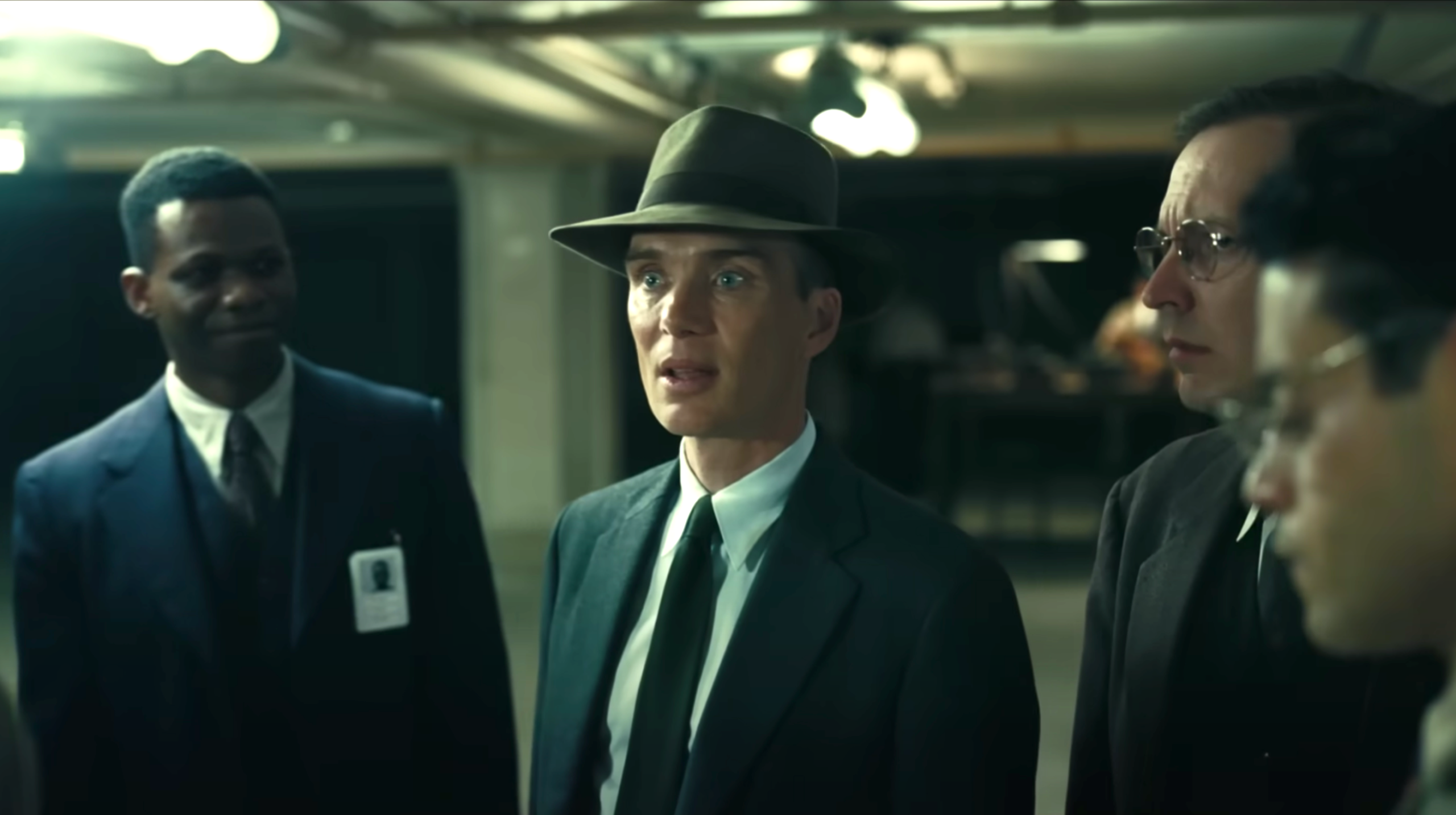
At its core, Oppenheimer probes into the paradoxical nature of technological advancement. It forces audiences to confront the troubling duality of scientific progress, wherein the same advancements that can propel humanity forward can also unleash unspeakable devastation. This exploration of the dark side of technology sparks a reflective discourse among viewers, making them question the implications and costs of scientific discovery.
Oppenheimer also explores the brutal and genuine nature of war. Through the film’s narrative, audiences experience the visceral reality of conflict, its dehumanizing effects, and the ethical difficulties it presents. By examining the reality of war beyond the glorified or sanitized versions often depicted in cinema, Oppenheimer encourages viewers to ponder the actual cost of armed conflict.
Perhaps one of the most significant philosophical threads running through Oppenheimer is the ethical responsibility of scientists towards society. The film delves into the moral conundrums faced by J. Robert Oppenheimer and his team as they grapple with the implications of their groundbreaking work. This theme provides a sobering reflection on scientists’ role in shaping society and their moral obligations.
This thought-provoking philosophical arc is not just a backdrop to the main narrative but an integral part of the film, enriching its depth and gravity. These contemplative themes challenge viewers to think critically about the narrative and its real-world implications, making Oppenheimer more than just a cinematic spectacle – it becomes a catalyst for introspection and discussion.
IMAX: A New Era of Cinematic Experience
Pushing the boundaries of filmmaking, Christopher Nolan’s Oppenheimer is a technical marvel set to deliver an unparalleled cinematic experience. Shot entirely with an IMAX 70mm camera, a hallmark of Nolan’s commitment to the purity of the cinematic form, the film brings the audience into an immersive and visually stunning world that is truly a spectacle to behold.
The IMAX 70mm camera, a groundbreaking tool in filmmaking, provides a level of detail, clarity, and vibrancy that is unmatched. This, coupled with Nolan’s exceptional cinematography, results in a visual extravaganza that is as captivating as it is immersive. Every frame of Oppenheimer is painstakingly detailed, each shot meticulously composed to create a visually stunning masterpiece that is bound to leave audiences spellbound.
But the cinematic prowess of Oppenheimer is not just about the stunning visuals. The IMAX 70mm format also offers viewers a sense of depth and immersion that is simply unparalleled. This format creates an expansive field of view, capturing the grandeur of the film’s World War II-era settings in breathtaking detail. It draws viewers in, making them feel as if they are not just watching the events unfold, but are part of the narrative itself.
And all of this is accomplished without the use of 3D glasses. Nolan has opted for a more organic, immersive experience, allowing the visuals to speak for themselves without needing additional enhancements. This decision results in a viewing experience that is authentic, unfiltered, and awe-inspiring.
Nolan’s Unique Approach to Filmmaking
Christopher Nolan, a virtuoso in filmmaking, employs a unique and Spartan approach to his craft, which becomes markedly apparent in his latest work, Oppenheimer. Nolan’s distinctive style, characterized by his unwavering dedication, meticulous attention to detail, and relentless pursuit of authenticity, lends an added layer of realism to the film that is both palpable and enthralling.
Nolan, an auteur recognized for his insistence on creative control and perfectionism, is known to immerse himself deeply in each of his projects. His approach to filmmaking is akin to a maestro composing a symphony, each scene meticulously crafted and each shot thoughtfully composed. This meticulousness is evident in every frame of Oppenheimer, showcasing the director’s unwavering commitment to authenticity and perfection.
Meticulous attention to detail is another defining characteristic of Nolan’s filmmaking style. Whether it’s the realistic depiction of the World War II era, the nuanced performances he elicits from his actors, or the atmospheric sound design that complements the stunning visuals, every element in Oppenheimer reflects Nolan’s precision and a keen eye for detail. This devotion to authenticity ensures that the film is not just a captivating cinematic experience but also a faithful representation of the historical period it portrays.
Further enhancing the film’s authenticity is Nolan’s Spartan approach to filmmaking. Known for his preference for traditional filmmaking techniques over digital methods, Nolan has chosen to eschew CGI entirely in Oppenheimer. This deliberate decision lends a layer of realism to the film, making the narrative more immersive and engaging. Viewers are drawn into the world of Oppenheimer not by digital illusions but by the sheer authenticity of the filmmaking.
Anticipated Booming-Box Office Potential
As Christopher Nolan’s Oppenheimer gears up for its worldwide release, it’s not just the film’s narrative brilliance or the director’s remarkable storytelling that has caught the industry’s attention; the film’s box office potential is also making waves. With an estimated opening weekend revenue of $40 to $49 million, Oppenheimer is anticipated to make a significant, potentially seismic impact at the box office, leaving a trail of records in its wake.

This projected figure does not merely serve as a testament to the film’s widespread appeal but also underscores the sheer magnetism of Nolan’s brand of cinema. The anticipation surrounding the film, fueled by its positive buzz and high expectations, suggests a financial success story waiting to unfold. The film’s potential for box office glory is clear, and as the ticket counters begin to buzz, Oppenheimer looks set to turn into a box office behemoth.
But it’s not just the monetary success that’s noteworthy. The commercial performance of Oppenheimer also stands as a symbol of the audience’s appreciation for high-quality, thought-provoking cinema. It’s a nod toward the collective admiration for a film that seamlessly marries entertainment with intellectual stimulation and is a testament to compelling storytelling’s power.


